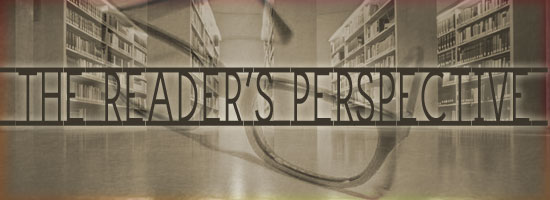The Connundrum of Context
by Joseph Arellano
Here’s a question that I struggle with as a book reviewer, “Is it appropriate to make reference to other books when I review a new one?” For the reasons I’ll explain here, my answer tends to be situational.
Let’s say that I’m reviewing the latest novel from author Joe Blow called A Kick in the Head. If I think that this work from author Blow is the best thing he’s done – and it quite clearly calls for a highly positive review, I’m unlikely to reference any other works by Blow or by other writers. Why? Because I’m explaining why I like or admire this release. Many readers, and most especially Blow’s longtime followers, are happy to accept a positive review on its face.
But if Blow’s latest book blows (sorry, I couldn’t resist…), there’s a good chance that I’ll refer to either his earlier, better works, or to those of other authors writing in the same genre. The reason for this is that I would expect to be challenged, either by a reader new to this author or by one of his loyal fans. Generally, negative reviews require more information – more context, if you will – to set the stage for the reviewer’s not-so-pleasing conclusion.
What Blow’s fans are really asking of the negative reviewer is, “What makes you think you’re correct?” Or, in plain English, “What’s your ammunition?” So my first option – and often the best one – is to compare this new work to the author’s earlier ones. Maybe the writer was clearly hungrier earlier, or fresher and this stance provides me with the basis to make the claim that his work is now sounding worn and tired. Regardless of whether a fan of Blow’s buys my argument, I’m not too subtly making the point that I’ve also read all or most of his writings. (It makes a difference to me personally if someone criticizing one of my favorite authors indicates that he/she has read all or most of his/her works. I’ll give more weight to that criticism than to someone’s who notes that this is the first book they’ve read by an author who I know and love.)
The next option is to compare Blow to his direct competition. This can be preferable when time seems to have passed Blow by… He may have been the best writer of his type back in the day (heck, he may even have created the genre in his youth), but this doesn’t give him a pass today. There may be a dozen or so new and younger writers who have tailored Blow’s style into something that’s fresh and new on the runway. But I’ll have to give some specific examples of how and where this is true, which is why I would likely include a comment like, “A Kick in the Head is not only not as engaging as Blow’s classic The Last Bus Home, it also seems dull compared to Judy Bling’s brilliant debut novel of 2010, Fighting Back.” In instances where another author’s work is cited, I think it should be something current (written within the last year or two).
But there is an instance in which a positive review can and likely should include a reference to other writings. This applies to cases in which the reviewer – I or someone else, attempts to make the case that a work by a new writer approaches greatness. If I’m going to argue that new author Judy Bling’s first book is stunning, I think I need to provide context by making comparisons to some well-known or accepted best writers. Does she set scenes as effortlessly as Anne Lamott, or write with a cool and icy focus like Audrey Niffenegger?
If one’s going to argue that a new writer approaches greatness, then I think one had better be willing to specifically compare that writer to other exemplary writers, past or present. (Not everyone’s going to agree with the greatness of the selections, but that’s beside the point. They don’t have to agree with the review either.)
Now let’s hope against hope that Blow’s next book is better than A Kick in the Head!
Joseph Arellano has a background in law and communications. He served as a government agency Public Information Officer, and has done pre-publication review and editing work for a publisher based in England. His book critiques have appeared in several publications including San Francisco Book Review. He and his wife live in Elk Grove, California

